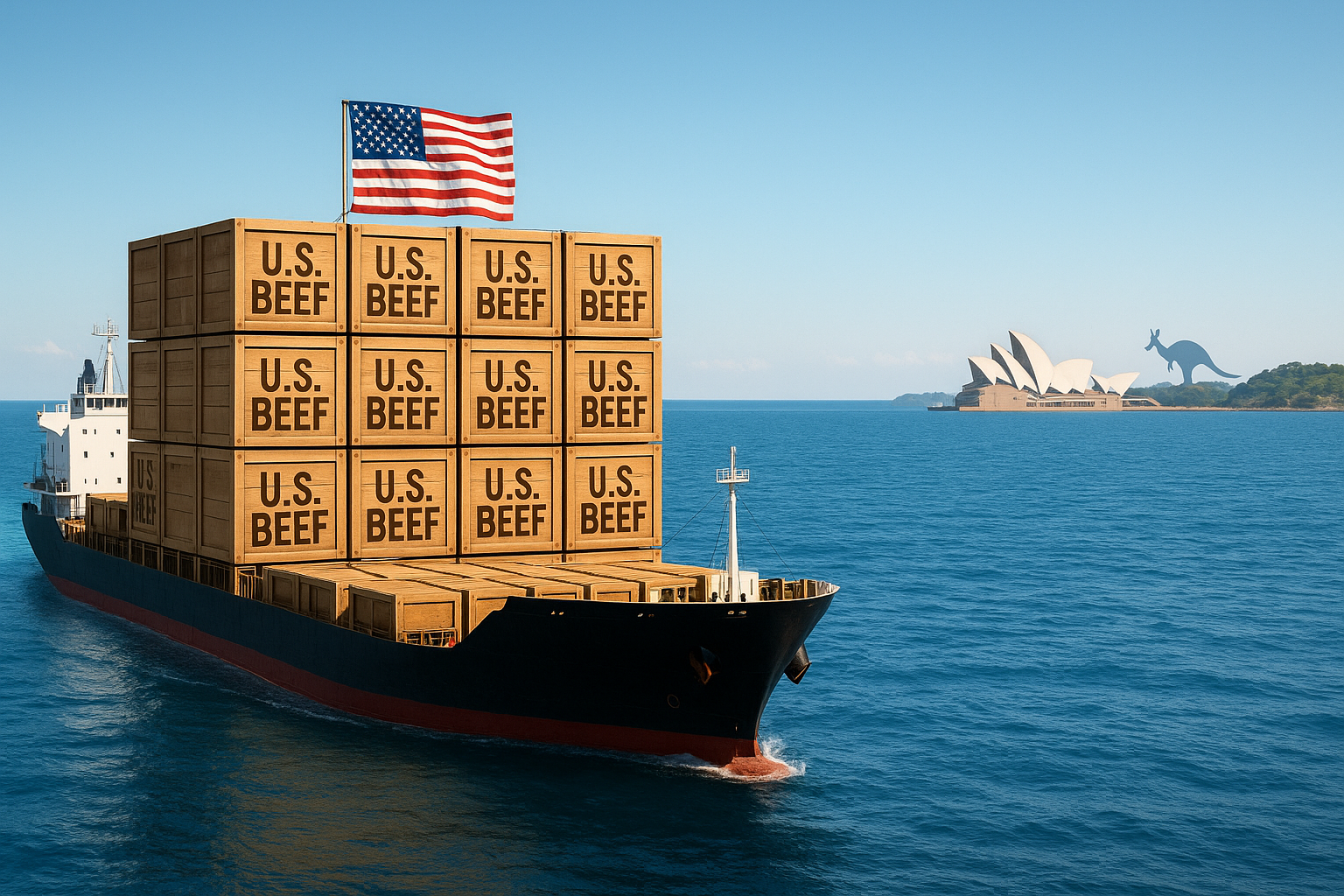Australia buying American beef.
Read that again.
It's like hearing Switzerland importing chocolate or Italy purchasing pasta from abroad. Not impossible, just downright puzzling at first glance.
The news that Australia—a country with nearly twice as many cattle as people and a beef export industry worth billions—will start importing American steaks represents one of those rare trade developments that deserves a moment of reflection. When Trump trumpeted this as a "Major Win for U.S. Agriculture," my first instinct was to roll my eyes. But for once, the man's characteristic bombast might actually be warranted.
I've been covering agricultural trade for years, and if there's one thing I've learned, it's that these deals are rarely about what meets the eye. This isn't about Australia suddenly running out of cows (they've got plenty). It's about the labyrinthine world of agricultural regulations—those mind-numbing technical specifications about hormone treatments, feed additives, and slaughterhouse procedures that determine whether your T-bone can legally cross an international border.
Australia has historically maintained some of the world's strictest biosecurity protocols. For good reason, too. As an island continent with unique ecosystems, they're paranoid about importing agricultural diseases. Fair enough.
So what changed?
Well, for one, the global pandemic exposed vulnerabilities in even the most robust supply chains. Countries everywhere are rethinking their "all eggs in one basket" approach. (Sorry for the mixed agricultural metaphor there.)
Australia has also weathered some brutal droughts recently. When ranchers can't feed their cattle because the land turns to dust, herd sizes shrink. Fast. Opening up to U.S. imports provides a climate change insurance policy of sorts.
There's politics at play too, naturally.
In the high-stakes chess game of Pacific Rim influence—where China makes increasingly aggressive moves—a beef deal strengthens U.S.-Australian ties. Sometimes a ribeye isn't just dinner; it's diplomacy on a plate.
The economics here fascinate me. Classical trade theory suggests countries should produce what they're most efficient at making. Australia is extremely good at raising beef. So is America. Yet here we are, shipping steaks across the Pacific in both directions.
Why? Because modern trade isn't just about efficiency—it's about resilience and redundancy. Having options matters in an unpredictable world.
Look, the initial volumes will probably be modest. This isn't going to transform either country's agricultural sector overnight. But precedents matter in trade relationships. Once the door is cracked open, it tends to swing wider over time.
What Trump doesn't mention (surprise!) is how this agreement sits somewhat awkwardly alongside his generally protectionist trade philosophy. But agriculture has always played by different rules in the political arena. Farm states matter to politicians of every stripe.
For American producers, breaking into the Australian market carries symbolic importance beyond immediate sales figures. It's like selling ice to Eskimos... except the ice is beef and the Eskimos are Australians. (That metaphor got away from me a bit, I'll admit.)
The reaction from Australian cattle ranchers has been predictably mixed. "We produce the best beef in the world, mate," one Queensland producer told me by phone, requesting anonymity to speak freely. "But I suppose a bit of competition never killed anyone."
Will American beef command premium prices in Australia as an exotic option? Or will it compete on cost with domestic products? That remains to be seen. Having tasted both extensively in my reporting travels (tough job, I know), I can attest they offer distinctly different flavor profiles.
What's certain is that this deal represents an interesting case study in how agricultural trade continues to evolve—sometimes in ways that seem counterintuitive at first glance. Even when that evolution means shipping steaks to a country already famous for its barbecues.
In the end, perhaps the strangest thing about this news isn't that it happened, but that it didn't happen sooner.
